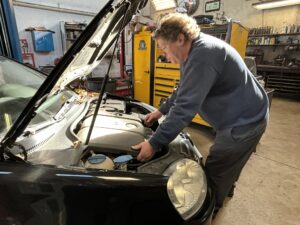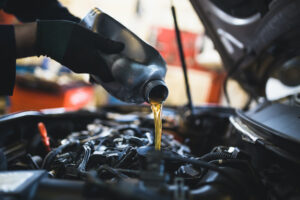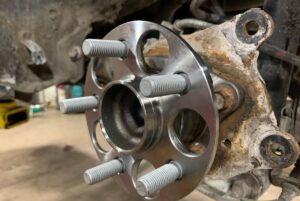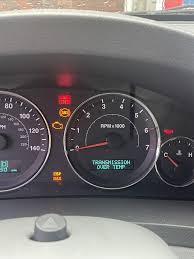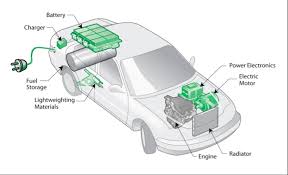What Auto Repairs Should I Do Before Selling My Car?
If you’re preparing to sell your car, you might be wondering: Should I fix anything before selling? The answer is yes—making smart, targeted repairs can help you get a better price, attract more serious buyers, and speed up the selling process. However, not every repair is worth doing, so it’s important to prioritize.
In this blog post, we’ll explore which auto repairs you should consider making before selling your car, what repairs you can skip, and how to maximize your return on investment.
Why Auto Repairs Matter Before Selling
First impressions matter. Buyers typically judge a car within minutes of seeing it. Obvious problems—like a cracked windshield or bald tires—can immediately lower your car’s value and scare off potential buyers. Even small issues can give the impression that the car hasn’t been well cared for, making people worry about hidden problems.
By addressing key repairs, you’ll:
- Improve your car’s curb appeal
- Command a higher asking price
- Build trust with buyers
- Make the car easier to sell
Essential Auto Repairs to Make Before Selling
Here are the key repairs and improvements that are typically worth doing before listing your car:
1. Fix Minor Cosmetic Damage
Small dings, dents, and scratches can make an otherwise good car look neglected.
Recommended Fixes:
- Paint touch-ups for minor scratches
- Dent removal (paintless dent repair if possible)
- Buffing out light scuffs
- Fixing cracked mirrors or replacing broken trim pieces
Tip: You don’t need a full repaint. Minor cosmetic touch-ups usually offer the best return.
2. Replace Worn-Out Tires
Tires in poor condition are a major red flag for buyers. Worn, bald, or unevenly worn tires suggest the car hasn’t been properly maintained—and they’ll cost the buyer money immediately after purchase.
Recommended Fixes:
- Replace tires if the tread is below 2/32 of an inch.
- At minimum, replace a flat or heavily damaged tire.
- Consider rotating or balancing tires to smooth out ride quality.
Tip: If all tires are only moderately worn, offering a slight discount instead of replacement can also be a strategy.
3. Repair or Replace Windshield Cracks
A cracked or chipped windshield can lead buyers to negotiate aggressively—or walk away entirely. In some states, windshield cracks can even cause a car to fail inspection.
Recommended Fixes:
- Repair small chips professionally (usually under $100).
- Replace the windshield if there are major cracks (costs vary but often between $200–$400).
4. Fix Minor Mechanical Issues
If there’s an obvious mechanical problem, such as noisy brakes or a rough-running engine, it’s worth addressing.
Recommended Fixes:
- Replace worn brake pads.
- Replace burnt-out headlights, taillights, and turn signals.
- Fix simple leaks (like an oil pan gasket).
- Top off and change essential fluids (oil, coolant, brake fluid).
Tip: If you don’t fix major mechanical issues, be upfront with buyers—and price the car accordingly.
5. Address Check Engine Lights
A dashboard full of warning lights is one of the biggest turn-offs for buyers. Even if the issue is minor, a check engine light creates suspicion and makes your car harder to sell.
Recommended Fixes:
- Use an OBD-II scanner to diagnose codes.
- Repair simple sensor issues (like an oxygen sensor or gas cap).
- Clear any false codes after repair.
6. Perform Basic Maintenance
Even if your car is running fine, buyers feel more comfortable when a car has been recently serviced.
Recommended Maintenance:
- Fresh oil change
- New air filter
- New cabin air filter
- Fresh wiper blades
- Properly inflated tires
Providing receipts for recent maintenance can be a huge selling point.
Nice-to-Have Repairs (If You Want to Maximize Value)
If you’re selling a newer, high-value car, you might also consider:
- Replacing old or sagging battery (especially if it struggles to start)
- Realigning the wheels if the car pulls to one side
- Shampooing or steam-cleaning the interior upholstery
- Detailing the engine bay (only if done carefully to avoid damage)
These aren’t mandatory but can add a little extra shine that tips a buyer toward choosing your car over a competitor’s.
Repairs You Might Skip Before Selling
Not every issue needs to be fixed—especially if the cost of repair exceeds the return you’ll get when selling.
Repairs to Consider Skipping:
- Major transmission repairs
- Engine rebuilds
- Repainting the entire car
- Advanced electronics fixes (like a malfunctioning entertainment system)
If the cost of the repair is high, you might be better off adjusting your asking price and selling “as-is.”
Selling As-Is vs. Investing in Repairs
When to Repair:
- The car is relatively new (under 7 years old).
- The vehicle is high in demand (popular models fetch top dollar when in great condition).
- The cost of repair is relatively low compared to the expected increase in resale value.
When to Sell As-Is:
- The car is older with high mileage.
- The cost of repairs is high and unlikely to add equivalent value.
- You need to sell quickly and don’t want to invest more money into the car.
Tip: If selling as-is, be upfront about known issues to avoid legal trouble and earn buyer trust.
How Much Should You Spend on Repairs?
A good rule of thumb: Don’t spend more than 10–15% of the car’s current market value on repairs before selling.
Example: If your car is worth $6,000, aim to keep your pre-sale repair budget under $600–$900. Otherwise, you risk losing money on the sale.
Final Steps Before Listing Your Car for Sale
✔ Get a professional detailing service or thoroughly clean the car yourself.
✔ Take clear, high-quality photos showcasing your clean, well-maintained car.
✔ Gather all maintenance records and organize them for the buyer.
✔ Get a pre-sale inspection report if you want to build even more buyer trust.
Conclusion
Making smart, strategic auto repairs before selling your car can add hundreds—or even thousands—of dollars to your final sale price. Focus on fixing small mechanical issues, cosmetic blemishes, tires, and check engine lights. Skip expensive major repairs unless the vehicle’s value justifies the cost.
With a well-presented, well-maintained car, you’ll not only attract more buyers—you’ll also sell your car faster and for a better price. 🚗💨
Thinking about selling your car soon? Start with a basic maintenance checklist today to maximize your vehicle’s value!

